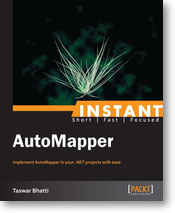I had the opportunity to speak at satazureday Azure Saturday here in Ottawa last week, and went through the topic of Azure Key Vault. I also had a co-presenter to share the talk with; an upcoming public speaker Petrica Mihai. He created most of the slides and the demo code in C# 🙂
You can view the code at https://github.com/mihaipetri/AzureKeyVaultNet
In any case if you are interested here are the slides on Azure Key Vault.
And the transcript:
- Azure Key Vault • What are we trying to solve with KeyVault?
- Let’s step back and look at a Cloud Design Pattern
- External Configuration Pattern
- External Configuration Pattern
- Typical Application
- Storing Configuration in file
- Multiple application
- External Configuration Pattern
- Helps move configuration information out of the application deployment
- his pattern can provide for easier management and control of configuration data
- For sharing configuration data across applications and other application instances
- Problems
- Configuration becomes part of deployment
- Multiple applications share the same configuration
- Hard to have access control over the configuration
- External Configuration Pattern
- When to use the pattern
- When you have shared configuration, multiple application
- You want to manage configuration centrally by DevOps
- Provide audit for each configuration
- When not to use
- When you only have a single application there is no need to use this pattern it will make things more complex
- Cloud Solution Offerings
- Azure KeyVault (Today’sTalk)
- Vault by Hashicorp
- AWS KMS
- Keywhiz
- What is Azure Key Vault ?
- Safe1guard cryptographic keys and secrets used by cloud applications and services
- Use hardware security modules (HSMs)
- Simplify and automate tasks for SSL/TLS certificates
- Gemalto / SafeNet – Hardware Security Module
- How Azure Key Vault can help you ?
- Customers can import their own keys into Azure, and manage them
- Keys are stored in a vault and invoked by URI when needed
- KeyVault performs cryptographic operations on behalf of the application
- The application does not see the customers’ keys
- KeyVault is designed so that Microsoft does not see or extract your keys • Near real-time logging of key usage
- Bring Your Own Key (BYOK)
- Create a Key Vault New-AzureRmKeyVault -VaultName ‘MihaiKeyVault’ -ResourceGroupName ‘MihaiResourceGroup’ -Location ‘Canada East’
- Objects, identifiers, and versioning
- Objects stored in Azure KeyVault (keys, secrets, certificates) retain versions whenever a new instance of an object is created, and each version has a unique identifier and URL
- https://{keyvault-name}.vault.azure.net/{object-type}/{object- name}/{object-version}
- Azure Key Vault keys
- Cryptographic keys in Azure KeyVault are represented as JSONWeb Key [JWK] objects
- RSA: A 2048-bit RSA key.This is a “soft” key, which is processed in software by KeyVault but is stored encrypted at rest using a system key that is in an HSM
- RSA-HSM: An RSA key that is processed in an HSM
- https://myvault.vault.azure.net/keys/mykey/abcdea84815e4ca8bc19c f8eb943ee88
- Create a Key Vault key $key = Add-AzureKeyVaultKey -VaultName ‘MihaiKeyVault’ -Name ‘MihaiFirstKey’ -Destination ‘Software’
- Azure Key Vault secrets
- Secrets are octet sequences with a maximum size of 25k bytes each
- The Azure KeyVault service does not provide any semantics for secrets; it accepts the data, encrypts and stores it, returning a secret identifier, “id”, that may be used to retrieve the secret
- https://myvault.vault.azure.net/secrets/mysecret/abcdea54614e4ca7 ge14cf2eb943ab23
- Create a Key Vault secret $secret = Set-AzureKeyVaultSecret -VaultName ‘MihaiKeyVault’ -Name ‘SQLPassword’ -SecretValue $secretvalue
- Azure Key Vault certificates
- Import/generate existing certificates, self-signed or Enroll from Public Certificate Authority (DigiCert, GlobalSign andWoSign)
- When a KeyVault certificate is created, an addressable key and secret are also created with the same name
- https://myvault.vault.azure.net/certificates/mycertificate/abcdea848 15e4ca8bc19cf8eb943bb45
- Create a Key Vault certificate
- Secure your Key Vault
- Access to a key vault is controlled through two separate interfaces: management plane and data plane
- Authentication establishes the identity of the caller
- Authorization determines what operations the caller is allowed to perform
- For authentication both management plane and data plane use Azure Active Directory
- For authorization, management plane uses role-based access control (RBAC) while data plane uses key vault access policy
- Access Control
- Access Control based on Azure AD
- Access assigned at theVault level
- – permissions to keys
- – permissions to secrets
- Authentication against AzureAD
- – application ID and key
- – application ID and certificate
- Azure Managed Service Identity (MSI)
- Manage the credentials that need to be in your code for authenticating to cloud services
- Azure KeyVault provides a way to securely store credentials and other keys and secrets, but your code needs to authenticate to Key Vault to retrieve them
- Managed Service Identity (MSI) makes solving this problem simpler by giving Azure services an automatically managed identity in Azure Active Directory (Azure AD)
- You can use this identity to authenticate to any service that supports AzureAD authentication, including KeyVault, without having any credentials in your code
- Monitor how and when your key vaults are accessed, and by whom
- Save information in an Azure storage account that you provide
- Use standard Azure access control methods to secure your logs by restricting who can access them
- Delete logs that you no longer want to keep in your storage account
- Azure Key Vault Pricing • Operations (Standard or Premium) $0.030 per 10000 operations
- Advanced Operations (Standard or Premium) $0.150 per 10000 operations
- Certificate Renewals (Standard or Premium) $3.00 per renewal
- Hardware Security Module Protected Keys (Premium only) $1.00 per key
- Azure Key Vault DEMO
- Create KeyVault, Secrets, Keys and Certificates
- Create AzureAD Application
- Consuming Secrets and Keys https://azurekeyvaultnet.azurewebsites.net – live demo
- https://github.com/mihaipetri/AzureKeyVaultNet – demo code
Azure Key Vault Logging



Leave A Comment